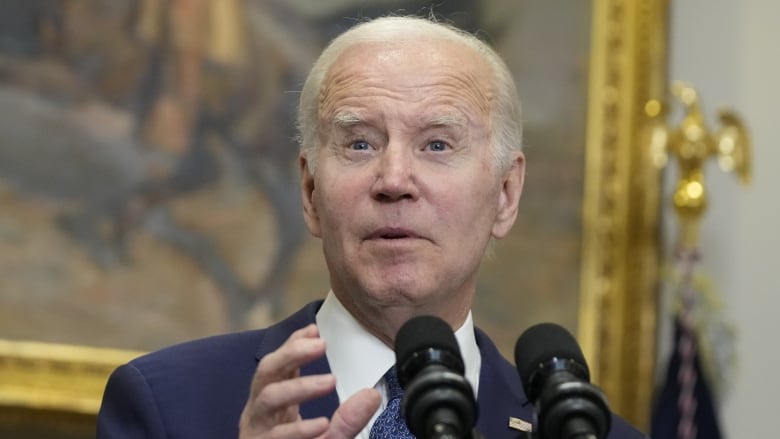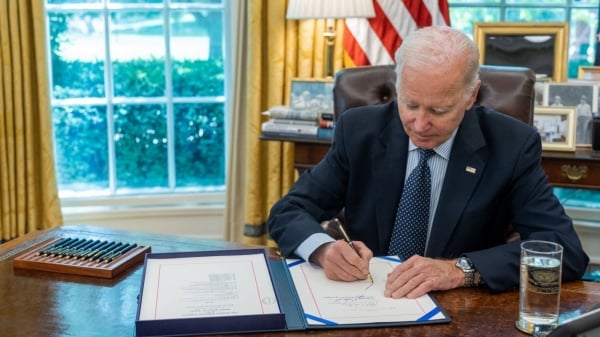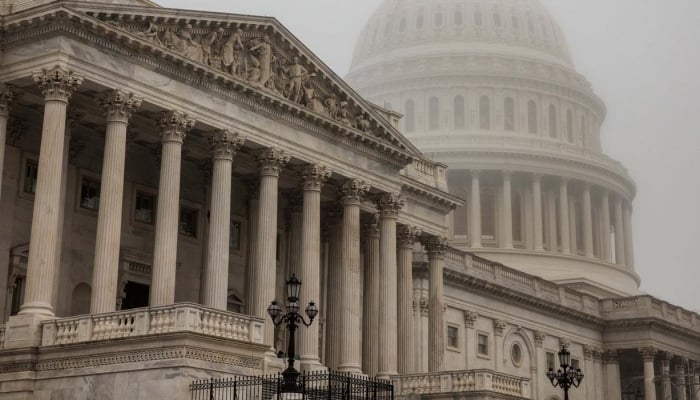But Congress will still scrutinize the bill, which also includes provisions to fund health care for veterans, change work requirements for some recipients of government aid and streamline environmental reviews for energy projects.

US President Joe Biden. Photo: CBC
Mr McCarthy said the House would vote on the legislation on Wednesday, giving the Senate enough time to consider and vote before June 5, the date Treasury Secretary Janet Yellen said the US government could default on its debt obligations.
Some hard-line Republicans say the deal does not cut enough to limit future deficits, while Democrats are concerned about changes proposed by Republicans.
Here are some things to note in the new US debt ceiling deal:
Suspend debt limits and spending restrictions for 2 years
The deal would keep US non-defense spending largely flat in fiscal year 2024 and increase by 1% next year, and would not cap the debt ceiling until January 2025, after the next presidential election in November 2024.
For the next fiscal year, the bill matches Biden’s proposed defense budget of $886 billion. However, it caps federal spending growth at 1% for the next six years, but that provision would not take effect starting in 2025.
Overall, the White House estimates that the plan would reduce Biden administration spending by at least $1 trillion, but official calculations have not yet been released.
Medical care for veterans
The deal would fully fund veterans’ health care under Biden’s proposed 2024 budget blueprint, including a $20.3 billion fund for veterans exposed to toxic substances or environmental hazards.
Recover unused translation support funds
The deal would cancel about $30 billion in unspent COVID-19 relief money that Congress had previously passed, including rental assistance, small business loans and rural infrastructure.
Funding for veterans health care and about $5 billion for the development of next-generation vaccines and COVID-19 treatments will not be withdrawn.
Energy projects
The agreement would make changes to the National Environmental Policy Act. For the first time in nearly four decades, there would be a “single lead agency” designated to conduct periodic environmental reviews. It would also simplify some requirements for environmental reviews.
Agencies will have one year to complete environmental assessments and projects deemed to have complex environmental impacts will need to be reviewed within two years.
The Mountain Valley Pipeline, a natural gas pipeline in West Virginia, will also be granted special approval for all outstanding permit requests.
Student Loans
Republicans have long sought to thwart the Biden administration’s efforts to provide student loans and aid to millions of people during the COVID-19 pandemic. Biden agreed to end student loan forbearance for individuals at the end of August.
What not to add
The administration’s proposal to eliminate many clean energy tax credits was not included in the deal. McCarthy and Republicans have argued that the tax cuts “would have a disruptive effect on the market and waste taxpayer money.”
Recently, hundreds of billions of dollars in tax credits have been invested in the private sector, creating thousands of manufacturing jobs in America.
Quoc Thien (according to AP)
Source


![[Photo] Visiting Cu Chi Tunnels - a heroic underground feat](https://vstatic.vietnam.vn/vietnam/resource/IMAGE/2025/4/8/06cb489403514b878768dd7262daba0b)



























































































Comment (0)